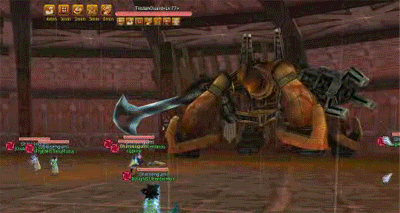the big gap?
7 posts •
Page 1 of 1
the big gap?
I was wondering what was everybody view on how the different races like the indians were in so many places in the world and how if we split up with them some time in the very past between Eurasia and the Americas why did Eurasia advance in technology and not the indians. and hawaii it was inhabited by indians before the first americans got there how is that so.
(\_/)
(O.o) Copy The Bunny Into Your Sig
(> <) Help Him Achieve World Domination...
@)}~`,~ Carry This Rose In Your Sig, As Thanks, To All The CAA Moderators.
the draconiandevil on flyff= leonardo davinci lol
Abait Server
draconian devil=67 Knight right now
E9dge= 16 bow acro going to be ranger
crystalseraph= 21 assist going to be bp
zelda rocks
(O.o) Copy The Bunny Into Your Sig
(> <) Help Him Achieve World Domination...
@)}~`,~ Carry This Rose In Your Sig, As Thanks, To All The CAA Moderators.
the draconiandevil on flyff= leonardo davinci lol
Abait Server
draconian devil=67 Knight right now
E9dge= 16 bow acro going to be ranger
crystalseraph= 21 assist going to be bp
zelda rocks
-

Togira Ikonoka - Posts: 38
- Joined: Thu Sep 29, 2005 7:01 pm
- Location: in a cave
The Berringian(sp?) theory is a pretty widely accepted one. Our scientific data suggests that humans migrated over from present day Russia durring the Ice Age (when the masses of ice were so great in the north that there was a virtual bridge of ice). Also, it is my theory (and probably others') that hawaii became inhabitted by those sea-fairing folk from the Asian seaboard, much like the Philipines or Indonesia would have been populated.

-
Slater - Posts: 2671
- Joined: Sat May 22, 2004 10:00 am
- Location: Pacifica, Caliphornia
If you are really interested in this subject, there is a fascinating book called, "Guns, Germs and Steel" which was published recently. It goes into a LOT of deatil about this.
My Websites:
http://www.flactem.com/
My Final Fantasy VII Walkthrough (FF7 Walkthrough)
My Final Fantasy VIII Walkthrough (FF8 Walkthrough)
My Final Fantasy IX Walkthrough (FF9 Walkthrough)
My Final Fantasy X Walkthrough (FFX Walkthrough)
Join MOES today - Plant a SIG for your tomorrow!
Follow me on Twitter! http://twitter.com/caamithrandir
http://www.flactem.com/
My Final Fantasy VII Walkthrough (FF7 Walkthrough)
My Final Fantasy VIII Walkthrough (FF8 Walkthrough)
My Final Fantasy IX Walkthrough (FF9 Walkthrough)
My Final Fantasy X Walkthrough (FFX Walkthrough)
Join MOES today - Plant a SIG for your tomorrow!
Follow me on Twitter! http://twitter.com/caamithrandir
-

Mithrandir - Posts: 11071
- Joined: Fri Jun 27, 2003 12:00 pm
- Location: You will be baked. And then there will be cake.
The Western world didn't have the Afro-Eurasian advantage of domesticated mount animals/beasts of burden, so migration and trade (and the technological diffusion that would come with it) was out of the question. That didn't stop some native peoples from getting some high marks of civilization, like pyramids in Mexico and artificial selection when it came to maize for the Mayas.
Job 7:16
I loathe my life; I would not live forever. Let me alone, for my days are but a breath.
I loathe my life; I would not live forever. Let me alone, for my days are but a breath.
-

Ingemar - Posts: 2244
- Joined: Sun Mar 28, 2004 12:43 pm
- Location: A Dungeon
Ingemar wrote:The Western world didn't have the Afro-Eurasian advantage of domesticated mount animals/beasts of burden, so migration and trade (and the technological diffusion that would come with it) was out of the question. That didn't stop some native peoples from getting some high marks of civilization, like pyramids in Mexico and artificial selection when it came to maize for the Mayas.
well indians had horses right so hows that the problem. And yes i remember the the mayas and how some of those actually had pretty acurate calenders setup before the European settlers came in the picture. well some of those were just theorys and hypothesis maybe the indians were the first lost European settlers lol.
(\_/)
(O.o) Copy The Bunny Into Your Sig
(> <) Help Him Achieve World Domination...
@)}~`,~ Carry This Rose In Your Sig, As Thanks, To All The CAA Moderators.
the draconiandevil on flyff= leonardo davinci lol
Abait Server
draconian devil=67 Knight right now
E9dge= 16 bow acro going to be ranger
crystalseraph= 21 assist going to be bp
zelda rocks
(O.o) Copy The Bunny Into Your Sig
(> <) Help Him Achieve World Domination...
@)}~`,~ Carry This Rose In Your Sig, As Thanks, To All The CAA Moderators.
the draconiandevil on flyff= leonardo davinci lol
Abait Server
draconian devil=67 Knight right now
E9dge= 16 bow acro going to be ranger
crystalseraph= 21 assist going to be bp
zelda rocks
-

Togira Ikonoka - Posts: 38
- Joined: Thu Sep 29, 2005 7:01 pm
- Location: in a cave
Indians did not have horses. Horses were brought over with the first Europeans. Indians saw their value and quickly adapted them to their uses. The same can be said of firearms.
There are many factors that must be accounted for in the difference between European technology and American technology.
One of the main factors is population. The Middle East has been heavily populated for six thousand years. A near constant state of conflict surrounded life for those people. Complex societies formed as a way to protect one's own people from other peoples. Over-population and the need for security drove people to war. Cities were built to help administer and protect populations. And all along, the need for more food and bigger and better weapons and defenses drove the people to invent.
The Americas, on the other hand, are vast in comparison. Compared to Europe and the Middle East, the population of the Americas is quite sparse. If you have a disagreement with your neighbor, just move away. Most conflicts were minor skirmishes because land and food are in abundance. Not to mention, the people basically travel on foot, which limits travel and mobility and decreases the area one tribe of people can claim control over. Therefore, the need to invent new and better ways of doing things was low. Necessity is the mother of invention and the peoples of the Americas had little need, so they invented little.
There are many factors that must be accounted for in the difference between European technology and American technology.
One of the main factors is population. The Middle East has been heavily populated for six thousand years. A near constant state of conflict surrounded life for those people. Complex societies formed as a way to protect one's own people from other peoples. Over-population and the need for security drove people to war. Cities were built to help administer and protect populations. And all along, the need for more food and bigger and better weapons and defenses drove the people to invent.
The Americas, on the other hand, are vast in comparison. Compared to Europe and the Middle East, the population of the Americas is quite sparse. If you have a disagreement with your neighbor, just move away. Most conflicts were minor skirmishes because land and food are in abundance. Not to mention, the people basically travel on foot, which limits travel and mobility and decreases the area one tribe of people can claim control over. Therefore, the need to invent new and better ways of doing things was low. Necessity is the mother of invention and the peoples of the Americas had little need, so they invented little.
[color="Red"]Please visit Love146.org[/color]
A member of the Society of Hatted Members

If your pedantic about grammar, its unlikely that you'll copy and paste this into your sig, to.
A member of the Society of Hatted Members

If your pedantic about grammar, its unlikely that you'll copy and paste this into your sig, to.
-

termyt - Posts: 4289
- Joined: Sat Jun 26, 2004 12:00 pm
- Location: oHIo
Togira Ikonoka wrote:I was wondering what was everybody view on how the different races like the indians were in so many places in the world and how if we split up with them some time in the very past between Eurasia and the Americas why did Eurasia advance in technology and not the indians. and hawaii it was inhabited by indians before the first americans got there how is that so.
With regards to the peopling of the Americas, there are several ideas about how this was accomplished. The principal idea has for a long time been that they originally came through the Bering land bridge at the end of the last ice-age. The early settlers would then have moved down through an ice-free corridor that ran more or less through central British Columbia at that time. However, this may not have been the only route used, as several finds seem to be older than the period in which the Bering land bridge is thought to have been passable.
An alternative is that the early settlers moved down the west coast taking a sea-route rather than a land route. Unfortunately, this will be difficult to test because most of the sites they would have stopped at will by now be underwater (owing to the rise in sea-level at the end of the Pleistocene). There is some support for this notion mongst archaeologists, because it seems quite plausible. The same can't be said though for another idea about the existence of an Atlantic sea-route skirting the edge of the ice-packs. It has also been proposed that some of the early settlers could have come from Europe this way, although the evidence for this notion is tenuous at best. We do know, based on genetic and linguistic studies that there were several waves of immigration around this time, and that it is possible to provide rough groupings of each.
The scientific method," Thomas Henry Huxley once wrote, "is nothing but the normal working of the human mind." That is to say, when the mind is working; that is to say further, when it is engaged in corrrecting its mistakes. Taking this point of view, we may conclude that science is not physics, biology, or chemistry—is not even a "subject"—but a moral imperative drawn from a larger narrative whose purpose is to give perspective, balance, and humility to learning.
Neil Postman
(The End of Education)
Anti-intellectualism has been a constant thread winding its way through our political and cultural life, nurtured by the false notion that democracy means that my ignorance is just as good as your knowledge
Isaac Aasimov
Neil Postman
(The End of Education)
Anti-intellectualism has been a constant thread winding its way through our political and cultural life, nurtured by the false notion that democracy means that my ignorance is just as good as your knowledge
Isaac Aasimov
-

Technomancer - Posts: 2379
- Joined: Fri Jun 13, 2003 11:47 am
- Location: Tralfamadore
7 posts •
Page 1 of 1
Who is online
Users browsing this forum: No registered users and 92 guests
